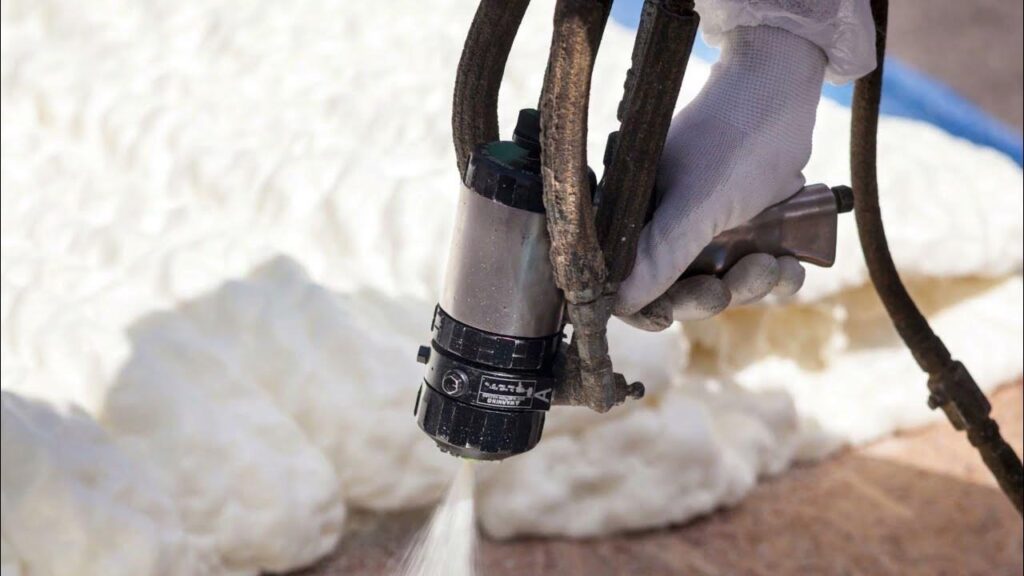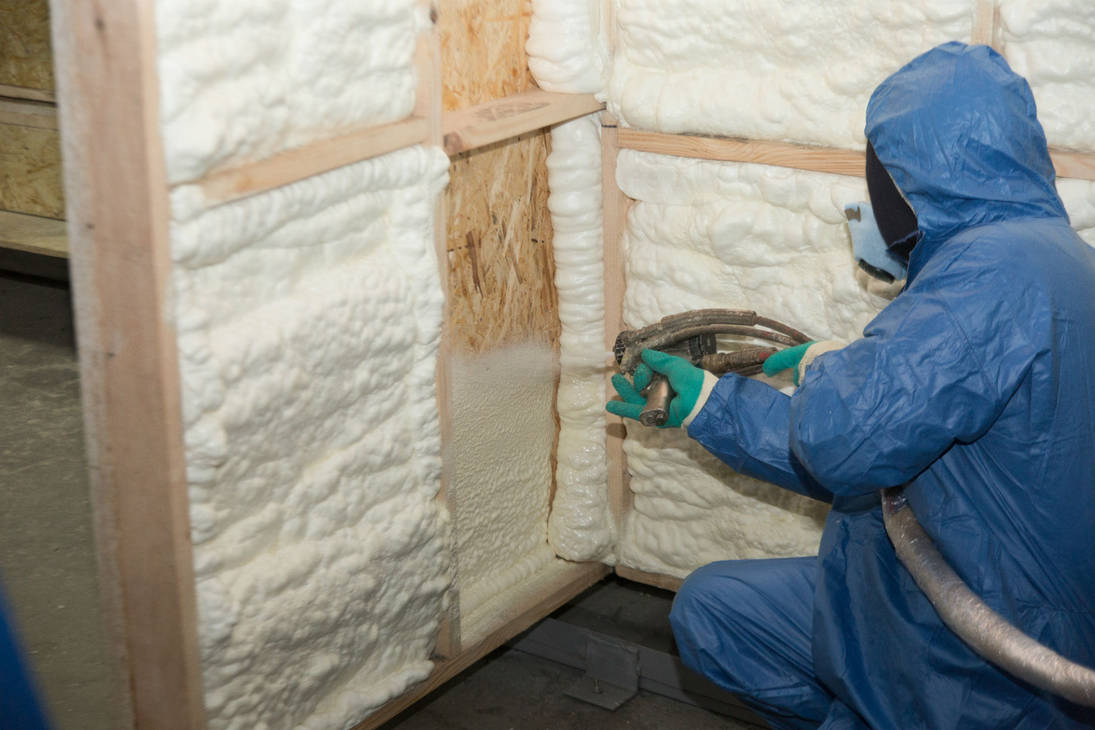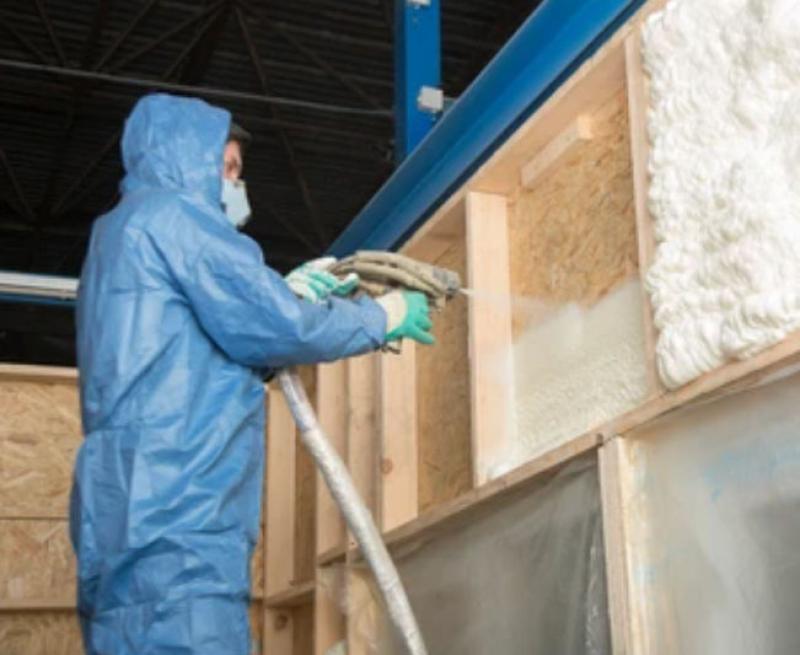Agricultural spray foam insulation provides a highly efficient solution for improving energy efficiency, temperature control, and overall building integrity in agricultural settings. Whether used for barns, silos, warehouses, or other structures, this insulation type offers unique advantages over traditional methods. This article highlights these benefits, focusing on factors such as energy savings, moisture control, and structural protection, providing farmers and agricultural business owners with essential insights.
The benefits of spray foam insulation in agricultural buildings are numerous. This material enhances thermal resistance, creates an airtight seal, and is durable enough to withstand varying environmental conditions, making it an essential choice for agricultural applications.
Benefits of Agricultural Spray Foam Insulation
Energy Efficiency and Temperature Control
Agricultural buildings often face temperature fluctuations that can affect both the equipment inside and the animals that may reside there. Spray foam insulation offers a significant advantage in regulating these temperature variations. By providing superior thermal resistance (R-value), it minimizes heat transfer, ensuring that buildings stay cooler in the summer and warmer in the winter.
| Feature | Spray Foam Insulation | Traditional Insulation |
|---|---|---|
| Thermal Resistance (R-value) | High (6.0 – 7.0 per inch) | Low to moderate (2.0 – 4.0 per inch) |
| Energy Efficiency | High (Reduces energy costs by up to 50%) | Moderate |
| Temperature Control | Stable, less fluctuating | Varies based on insulation type |
Moisture and Mold Resistance
Spray foam insulation also acts as a barrier to moisture and water infiltration. Unlike fiberglass or cellulose, spray foam is impermeable to water, preventing condensation that could otherwise lead to mold and mildew growth. This is particularly crucial in agricultural settings where moisture levels tend to fluctuate.
| Benefit | Spray Foam Insulation | Traditional Insulation |
|---|---|---|
| Water Resistance | Impermeable | Vulnerable to moisture |
| Mold and Mildew Protection | Excellent resistance | Susceptible to growth |
| Effect on Health | Reduces allergens | May increase allergens |
Durability and Long-Term Performance
Agricultural spray foam insulation is not only energy-efficient but also durable. Once applied, it creates a solid, seamless barrier that doesn’t settle or lose its insulating properties over time. This longevity makes it a wise investment in the long run, ensuring consistent performance for years.
| Feature | Spray Foam Insulation | Traditional Insulation |
|---|---|---|
| Durability | Very durable, lasts decades | Can degrade or shift over time |
| Maintenance | Minimal upkeep required | Requires more frequent maintenance |
| Life Expectancy | 50+ years | 20-30 years |
Air Sealing Capabilities
Spray foam insulation is known for its ability to expand and fill gaps and cracks, forming a tight seal that prevents air leaks. This characteristic is beneficial for agricultural structures that need to be sealed tightly to prevent drafts or pests from entering, maintaining a controlled environment.
| Benefit | Spray Foam Insulation | Traditional Insulation |
|---|---|---|
| Air Sealing | Excellent (Seals all gaps) | Moderate to low |
| Energy Loss Prevention | Minimal | Higher due to air leaks |
Environmental Benefits
Spray foam insulation in agricultural buildings contributes to environmental sustainability. By reducing energy consumption, it lowers the carbon footprint of agricultural operations. Additionally, many spray foam products are made with eco-friendly chemicals, offering a greener insulation alternative.
| Feature | Spray Foam Insulation | Traditional Insulation |
|---|---|---|
| Energy Conservation | Significant (Reduces energy use) | Moderate |
| Carbon Footprint | Lower (Eco-friendly options available) | Higher |
| Sustainability | High (Green options) | Varies by material |
Things to Consider Before Making a Decision
While spray foam insulation offers many advantages, there are also factors to consider before committing to its installation in agricultural structures.
- Cost: While spray foam provides long-term savings, its initial installation costs are higher compared to traditional insulation methods. It’s important to weigh the upfront costs against the long-term energy savings.
- Professional Installation: Spray foam insulation requires professional application, which can add to the overall cost. Proper installation is critical to achieving the full benefits of this insulation.
- Building Needs: Evaluate the specific requirements of your agricultural building. For example, if the structure is prone to extreme moisture conditions, spray foam may be an ideal choice. However, in areas with minimal temperature fluctuations, other insulation options might be more suitable.
Common Questions
How long does spray foam insulation last in agricultural buildings?
Spray foam insulation can last up to 50 years or more, making it a long-lasting solution for agricultural buildings. Its durability ensures that it continues to perform effectively without the need for frequent repairs.
Is spray foam insulation safe for livestock?
Yes, spray foam insulation is safe for livestock when properly applied. It is non-toxic and helps maintain a stable indoor climate, promoting the health and comfort of animals.
Can I install spray foam insulation myself?
While it’s possible for some experienced DIYers to install spray foam, professional installation is recommended to ensure it is applied correctly. Improper application can result in poor performance and potential safety risks.
Will spray foam insulation reduce noise in agricultural buildings?
Yes, spray foam insulation helps to reduce noise levels by blocking sound transmission. This is particularly useful in agricultural buildings where noise from machinery, equipment, or animals can be disruptive.
Technical Specifications of Agricultural Spray Foam Insulation
| Property | Closed-Cell Spray Foam | Open-Cell Spray Foam |
|---|---|---|
| Density | 2.0 – 2.2 lbs/ft³ | 0.5 – 0.6 lbs/ft³ |
| R-Value (per inch) | 6.0 – 7.0 | 3.5 – 4.0 |
| Air Barrier | Yes | Yes |
| Moisture Resistance | High | Moderate |
| Sound Insulation | Moderate | Excellent |
| Application Thickness | 2 – 5 inches | 3 – 4 inches |
| Durability | Long-lasting (50+ years) | Long-lasting (50+ years) |
Conclusion
Spray foam insulation contractor offers a range of benefits that make it an excellent choice for agricultural buildings. From its energy efficiency to its resistance to moisture and mold, this insulation provides substantial advantages over traditional methods. Before making a decision, it’s important to assess your building’s specific needs, the costs, and the long-term benefits. With the right installation and maintenance, agricultural spray foam insulation can provide lasting value and contribute to a more energy-efficient, comfortable, and sustainable agricultural operation.
Topic FAQ
What is the main advantage of spray foam insulation for agricultural buildings?
The main advantage is its ability to provide superior thermal resistance, reducing energy costs and maintaining a stable internal temperature, which is crucial in agricultural environments.
Is spray foam insulation more expensive than traditional insulation?
Yes, spray foam insulation typically has a higher initial cost than traditional options. However, the long-term energy savings and reduced maintenance needs often outweigh the upfront investment.
How does spray foam compare to fiberglass insulation?
Spray foam provides better air sealing, moisture resistance, and overall energy efficiency compared to fiberglass, making it a superior choice for agricultural applications.
Can spray foam insulation be applied in existing agricultural buildings?
Yes, spray foam insulation can be applied to both new and existing structures. It expands to fill gaps and cracks, ensuring a tight seal even in older buildings.
Author: Jeremy Fields brings over a decade of experience in construction and business to Ozark Eco Foam. With a background in both residential and commercial projects, he focuses on completing each insulation job with accuracy and attention to detail. Ozark Eco Foam reflects his commitment to quality work and practical solutions built on years of hands-on industry knowledge.
Reviewer: Amelia Young contributed insights from 10 years in spray foam insulation. Her review helped sharpen the article’s focus on customer engagement and clear service messaging.







